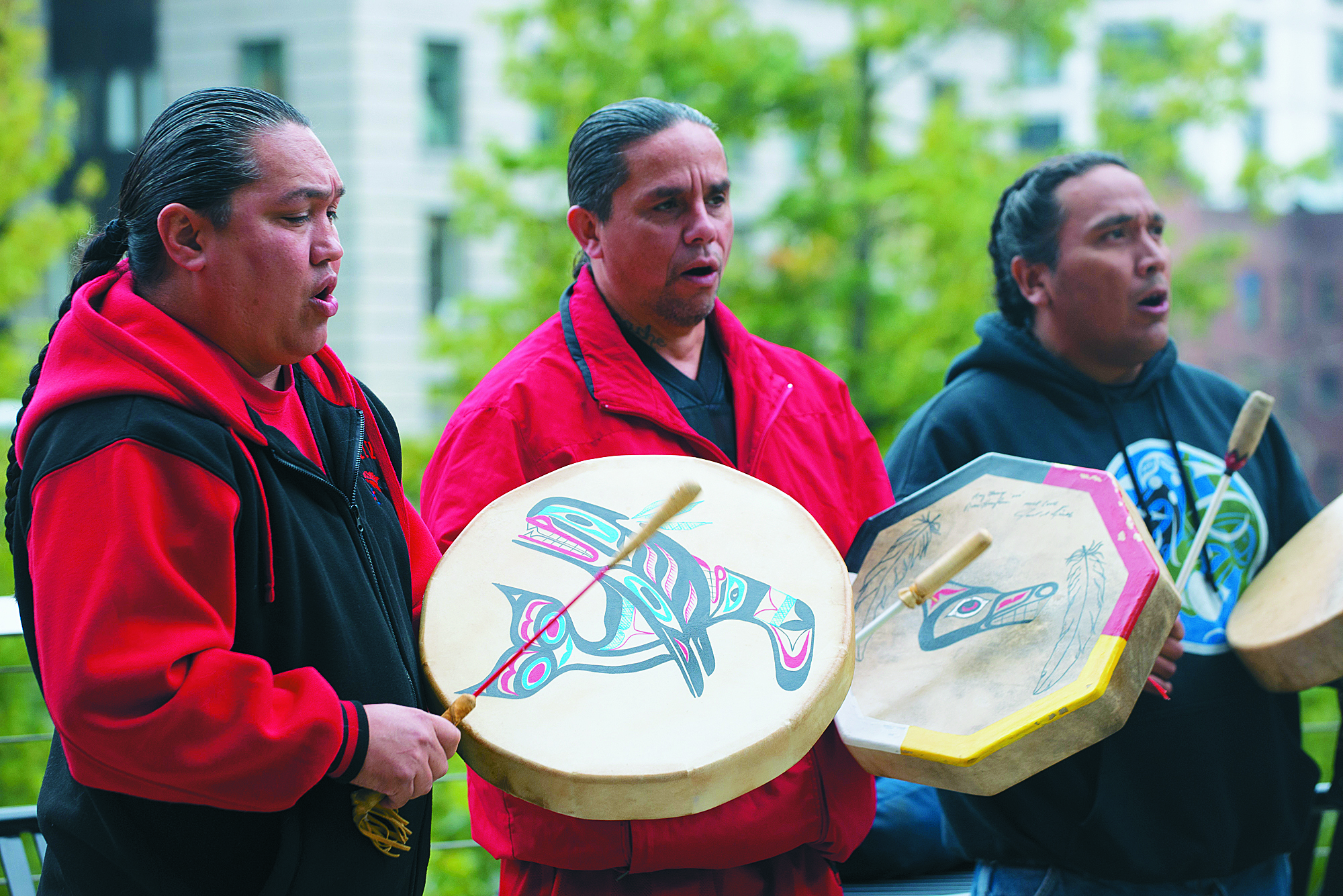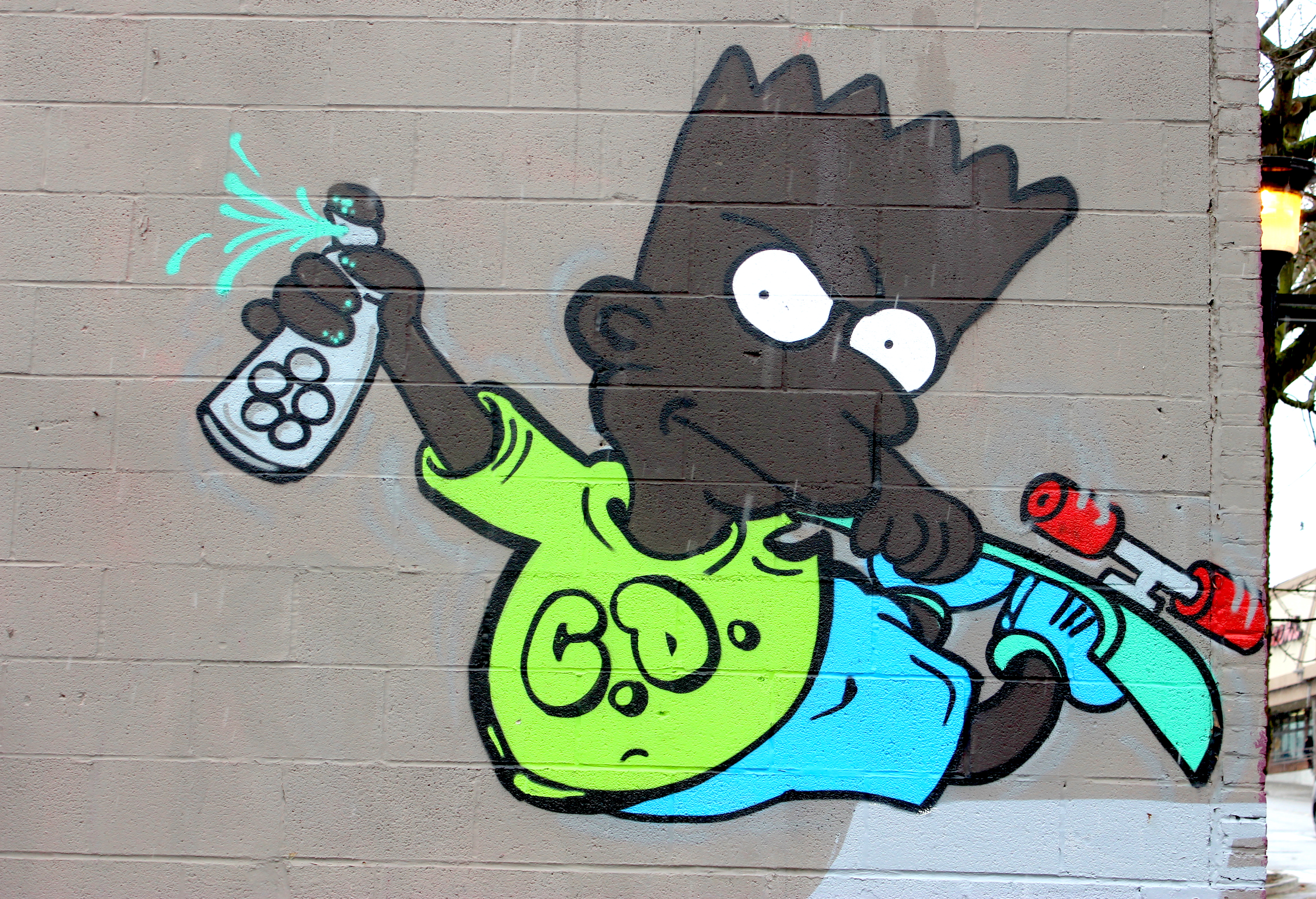Photo by Morgen Schuler
Columbus sailed the ocean blue in 1492, where he discovered a native population that he soon subjected to mass genocide, leading to the deaths of hundreds of thousands (some historians estimate millions). Those whom Columbus didn’t kill in his horrific campaign were shipped back to Europe to be sold into brothels or labor, effectively starting the brutal legacy of the transatlantic slave trade.
In America, we tend to conveniently ignore or excuse the grim part of that story. Instead we celebrate “Columbus Day” on October 13 in the name of the pioneering spirit that drove him to “discover” America—much to the dismay of not only the ghost of Leif Erikson, but the Native people who arrived 14,000 years earlier, many of whom have taken to nicknaming the holiday “Genocide Day.” But in Seattle, at least, that is changing, thanks to a local Lakota man named Matt Remle.
“The first attempt to abolish Columbus Day was in 1977, the year I was born,” Remle says, laughing before he takes a more serious tone. “For me personally, it’s about saying this man was essentially a monster. Just as Jews probably wouldn’t like a Hitler Day or New Yorkers wouldn’t like a Bin Laden Day, no matter how much time has passed, that person is still representative of atrocities that happened to their communities. The attempted genocides that happened over the past 500 years have failed, and that’s one of the ideas behind Indigenous Peoples’ Day. We’re still here. This is who we are. We are relearning our languages, our culture and spirituality, despite everything we’ve gone through the past 500 years.”
Matt Remle, the man behind the Resolution. Photo by Morgen Schuler
Remle, a father of three who works with Native high-school students in the Marysville School District, first tried in 2011 to get the city to change Columbus Day to Indigenous Peoples’ Day. Seattle City Council didn’t bite at the time, but State Senator Margarita Prentice did. “I guess she wasn’t able to push it through to muster the votes on a state level, so it kind of fizzled,” Remle says. But this year, after Minneapolis unanimously passed a resolution to make the switch to Indigenous Peoples’ Day “to better reflect the experiences of American Indian people and uplift our country’s indigenous roots, history, and contributions,” Remle seized the opportunity.
“When Minnesota happened, we said, ‘Hey, we’ve got some new councilmembers, some who have been pretty responsive to the Native community,’ ” Remle says. “We might as well try it again. We sent it back out to the City Council in the early spring of this year, and councilmember [Kshama] Sawant responded and said, ‘I love this idea and I’ll sponsor this for you. Would you write the resolution?’ I said ‘Heck, yeah,’ and worked on the resolution with one of her aides. It just kind of snowballed, I guess—[councilmember] Bruce Harrell’s office jumped on and said they’d be a co-sponsor.”
Soon the Seattle Human Rights Commission came aboard as well, offering its unanimous and “absolute” support and going so far as to write a resolution of its own to add to the cause. After Remle’s resolution made the rounds in the urban Native community, undergoing edits to reflect the input he received, Remle discovered that Mayor Ed Murray had also expressed his support.
The City Council was scheduled to vote on the resolution on Sept. 2—a symbolic date for Native people, since Seattle school districts begin the school year on Sept. 3, and “a component of the resolution… calls on the Seattle Public School District to work with local tribes on incorporating tribal history, culture, governance, sovereignty, and tribal issues into the school districts,” Remle says. “With that coming out the day before school starts, and Columbus being the first thing a lot of students learn about in their history courses, we thought that would be a powerful statement.”
But that didn’t happen. Instead, Murray is asking the council to postpone the scheduled Sept. 2 vote until Sept. 17 so that he can be around to sign the bill on Columbus Day for what will amount to a photo op.
Although I counted four cameras in the Council chambers, Councilmember Harrell said, “You see one camera here, why aren’t there more cameras here? To put it in colloquial terms, I want to milk this out a little bit.”
To a round of applause, Remle responded, “You say you want more media here, but this isn’t for the media, it’s for us.” Although the bill is almost guaranteed to pass, the mass of passionate natives who came to the Council session, drums in hand, left only with more promises.
A drum circle gathered to celebrate the (almost) step forward. Image by Kelton Sears
But a hopeful Remle believes the resolution will mark a baby step toward local recognition of the rights of the Native people, who to this day deal with the effects of the Westward expansion Columbus began. “We still battle corporations and the federal government when there’s attempted intrusions in our land, like those trying to lay claim to Lummi land to build an export terminal. There’s quite a few examples like that—the Keystone Pipeline, that wants to go through where I’m from, Lakota land, which is in violation of our treaty agreements, which are continuously violated. [This resolution] is a way to bring attention to that, as well as the continued plight we in our tribal communities face today.”
ksears@seattleweekly.com








